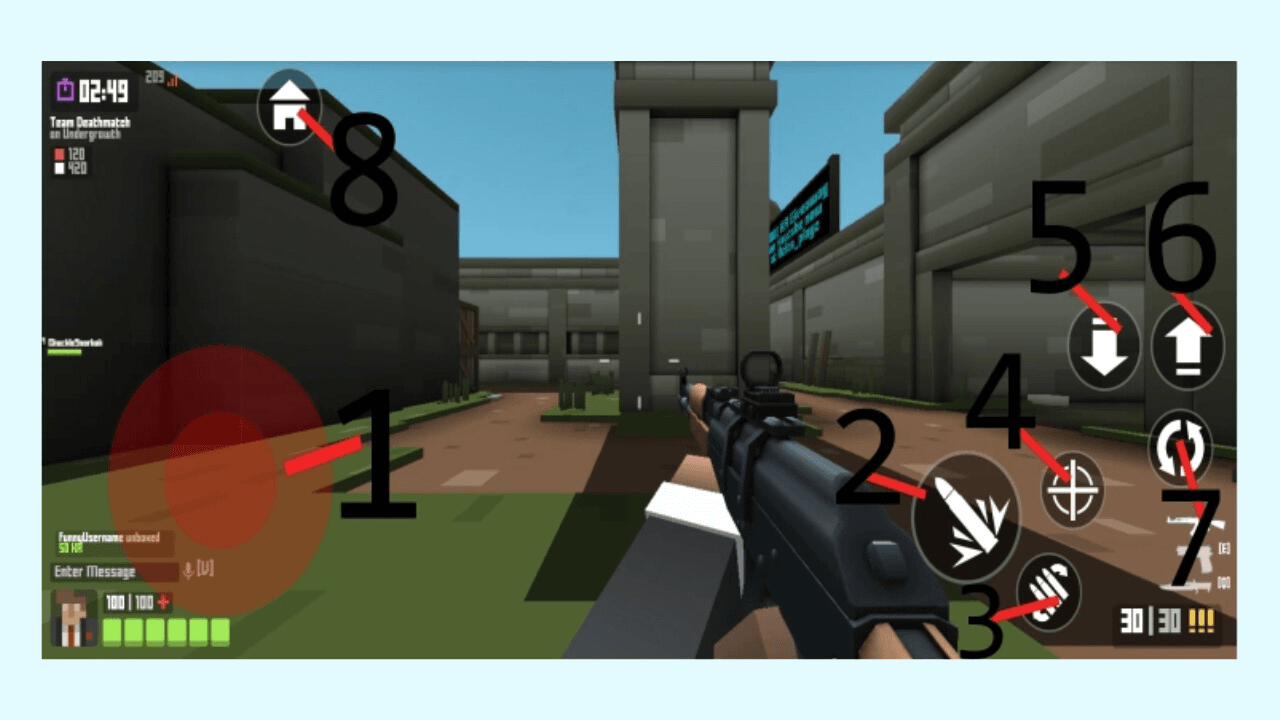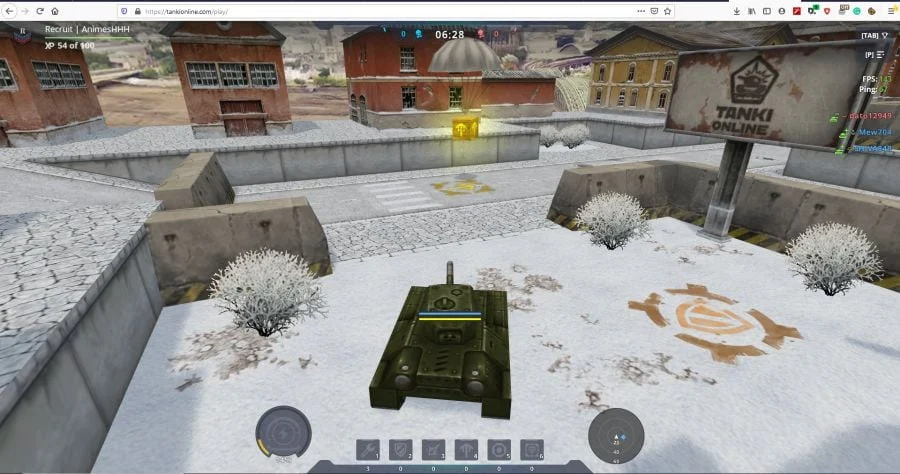Introduction
In the ever-evolving world of gaming, browser-based multiplayer online games have carved out a special niche. These games offer the thrill of competition, collaboration, and community without the hassle of downloads or high-end hardware requirements. With just an internet connection and a browser, players from around the world can dive into immersive experiences that rival those of major console and PC titles. This article will explore the rise, variety, and appeal of multiplayer online browser games, along with the best types, player communities, game mechanics, and the future of the genre.
The Evolution Of Multiplayer Browser Games

Multiplayer browser games have come a long way since the early days of simplistic text-based adventures and Flash-powered mini-games. In the early 2000s, titles like Runescape and AdventureQuest began introducing more complex mechanics, quests, and online interaction. As browser technology evolved, so did the quality and depth of the games. The deprecation of Flash was a turning point, pushing developers to adopt HTML5, WebGL, and other modern frameworks that offer smoother graphics, better compatibility, and real-time multiplayer capabilities.
Today’s browser games are more than just time-passers; they are full-fledged online experiences with rich visuals, customizable characters, evolving narratives, and competitive arenas. These games span multiple genres—MMORPGs, battle royales, strategy games, simulators, and more—making them accessible to a wide audience of gamers, from casual players to hardcore enthusiasts.
Accessibility And Convenience: A Major Selling Point
One of the most attractive features of multiplayer browser games is their accessibility. Unlike traditional PC or console games that require downloads, installations, or expensive hardware, browser-based titles can be played instantly. Players simply open a webpage and start playing, often without even needing to register an account. This instant access has made browser games particularly appealing to students, office workers on breaks, and mobile users.
Additionally, these games run on most devices including desktops, laptops, tablets, and even smartphones, allowing gamers to enjoy consistent experiences across platforms. The low system requirements mean that even older computers or low-end devices can handle the games without lag or performance issues. This democratization of gaming has opened the door for millions of players who otherwise wouldn’t have access to traditional gaming setups.
Top Genres Dominating The Browser Multiplayer Scene
Multiplayer browser games encompass a variety of genres, each offering unique gameplay mechanics and community dynamics. Massively Multiplayer Online Role-Playing Games (MMORPGs) allow players to explore vast worlds, engage in story-driven quests, and form guilds. Games like Drakensang Online and Mad World bring immersive RPG elements to the browser, complete with real-time combat and character progression.
Battle royale and action-based games are also hugely popular, offering fast-paced gameplay where survival is key. Titles like MiniRoyale2, Krunker.io, and ZombsRoyale.io allow players to jump into matches quickly and compete against others globally in intense, short rounds. These games provide endless replayability and encourage skill development and strategy.
Strategy and tower defense games are another cornerstone of the genre. In these games, players must outwit opponents through planning and tactics. Browser-based real-time strategy (RTS) titles like Forge of Empires, Elvenar, and Call of War let users build empires, manage resources, and engage in complex diplomacy or warfare—all from within a browser.
Simulation and sandbox games allow creativity and relaxation, where players can build, manage, and explore without strict objectives. Games like Town of Salem mix social deduction with multiplayer interaction, providing a unique gameplay loop that keeps players engaged for hours.
The Social Element: Community And Interaction

A crucial aspect of multiplayer browser games is the social experience they foster. Players can chat, team up, or go head-to-head in real time. Many games feature integrated chat systems, voice capabilities, or friend lists to maintain connections and coordinate strategies. This sense of community encourages long-term engagement and adds a human element that elevates the gameplay.
Forums, Discord channels, and Reddit threads often support these communities, offering spaces for discussion, event planning, and troubleshooting. Competitive players enjoy leaderboards and seasonal rankings, while cooperative-minded gamers find joy in forming alliances or clans to take on larger challenges together.
Events and seasonal content updates keep the experience fresh and dynamic. Developers often introduce limited-time events, tournaments, or holiday-themed challenges to maintain interest and engagement. These features create a living, breathing game world that evolves with its community.
Cross-Platform Play And Cloud Integration
As technology progresses, more browser games are adopting cross-platform play, allowing users to play the same game across devices. This functionality is especially important in today’s mobile-first world, where players switch between smartphones, tablets, and computers frequently. Cloud save features ensure that progress is not lost, and players can pick up right where they left off, regardless of the device.
Games like Realm of the Mad God and Tanki Online have embraced this future-forward approach, providing seamless cross-platform support and synchronized accounts. With the help of cloud-based gaming, some high-end browser titles even allow for console-quality experiences directly through web browsers.
Indie Developers And Innovation In Browser Games
Browser-based multiplayer games have also become a playground for indie developers. Without the barrier of entry that app stores or console publishing may require, browser games offer a low-cost, high-impact platform to showcase innovation and creativity. Developers can experiment with new mechanics, art styles, and multiplayer formats without huge financial investment.
Platforms like itch.io and CrazyGames have empowered independent creators to distribute their work to a broad audience, while feedback loops from engaged players help refine and improve the titles quickly. This has led to the rise of unique and offbeat games that would likely never have made it through traditional publishing pipelines.
Educational And Learning-Based Multiplayer Games
Not all multiplayer browser games are designed purely for entertainment. Many educational games leverage the multiplayer format to encourage cooperative learning and engagement. These games blend fun and knowledge by offering challenges that require critical thinking, teamwork, or problem-solving.
For instance, platforms like Kahoot! and Blooket have introduced multiplayer trivia and quiz formats that teachers can use in classrooms. Students compete in real-time while learning new concepts, which improves retention and interest. Similarly, language learning games with chat features promote vocabulary building through live interaction with others.
Challenges And Limitations In The Browser Gaming Space
While multiplayer browser games offer many advantages, they also come with limitations. The biggest challenge is often performance and security. Because these games rely heavily on browser memory and online connectivity, lag and server issues can occasionally hamper gameplay. Some games may not offer the same graphical fidelity or depth as downloadable counterparts.
Security concerns such as cheating, bot usage, and phishing links are also prevalent in open browser environments. Developers must constantly update their games to address exploits and vulnerabilities, which can be resource-intensive.
Monetization is another issue. Most browser games are free-to-play, which means they rely on ads, in-game purchases, or premium accounts for revenue. This sometimes leads to imbalanced gameplay, where paying users gain advantages over free users, affecting fairness and competition.
Future Of Multiplayer Browser Games

Despite the challenges, the future of multiplayer browser games is promising. Advancements in web technologies such as WebAssembly, WebGPU, and 5G are opening the doors for faster, more immersive, and complex games in browsers. With cloud gaming services becoming more prevalent, it is likely we’ll see a hybrid model where browser games offer both web and cloud-enhanced features.
AI integration may also play a larger role, with NPCs becoming smarter, matchmaking more precise, and game worlds adapting dynamically to player behavior. Gamification of real-life scenarios—such as virtual economies, fitness games, or collaborative simulations—could transform browser games into tools for productivity, wellness, or training.
Conclusion
Multiplayer online browser games have redefined what it means to game on the go. Their ability to offer instant, immersive, and socially rich gameplay with minimal requirements makes them an essential part of the modern gaming ecosystem. Whether you’re into action-packed shooters, strategic empire builders, fantasy RPGs, or quirky social games, there’s a browser title waiting to capture your interest.
As technology continues to evolve, browser games are set to become more powerful, more creative, and more connected than ever before. They are not just flashbacks to the past but are the forerunners of a gaming future that’s accessible to all. By combining convenience with innovation and community, multiplayer browser games continue to be a powerful force in online entertainment.

